Backyard Parties: 1980s | East L.A.'s DJ Culture

This is part of a series on backyard parties. Read More:
A Brief History of DJ Culture in Southern California
1970s: Temporary Discothèque
1990s: Party out of Bounds
2000s: Post-Backyard
Text by Gerard Meraz
By the 1980s DJ culture was fully entrenched in the Eastside. Record stores, DJ equipment rental and sales shops dotted the streets. Printing companies and downtown clothing emporiums like The Factory, catered to the DJs, promoters and the growing crowds attending DJ based events.
Musically, the DJ had a cornucopia of genres to mix together such as disco, Hi-N-R-G, new wave, rock-a-billy, ska, reggae, funk, freestyle and pop. DJ names sometimes overlapped and had to be distinguished from the one from L.A., from the one from S.G.V. The number of DJs made so that most DJ sets were between 45 minutes and 15 minutes, depending on the popularity of the DJ.
The promoters, who grew in numbers and size, gained greater power as their ability to promote more than a DJ gave them the numbers to claim larger venues and hire the best or hottest DJs. Backyard parties of 100-500 attendees filled weekend nights throughout the various neighborhoods in the greater Eastside from South Gate to Highland Park, from Boyle Heights to La Puente.
When the parties would be broken up by the local police, the crowds would go to another party or to local cruising spots like The Heavens, Flat Tops, The Winery, Elysian Park or anywhere they could continue to meet members of the opposite sex, get flyers for next week's parties and bump their sound systems playing DJ mixes.
By 1989 some DJs and promoters began to engage in negative activities such as causing fights at, or calling the police on competing parties. Also at this time, crack cocaine came into the barrios and ghettos and changed youth's options for fun and spending money to dealing drugs and violence over drug sales territory. Many DJs moved on to clubs and to other parts of the city and began experimenting with a new sound called house music.
'80s Mix: Gerard Meraz of the Wild Boyz and The Brat Pack stepped into a thriving DJ scene as a teenager. He had heard of the DJs that came before him and how some had moved into club residencies, large halls and massive events at the Pico Rivera Sports Arena. When he started he was just one of about 20 DJs at his high school. He knew he had to prove himself so he too could be club DJ with his own residency. This was the paradigm of the Eastside DJ scene.
Additional Videos
'80s Flyers



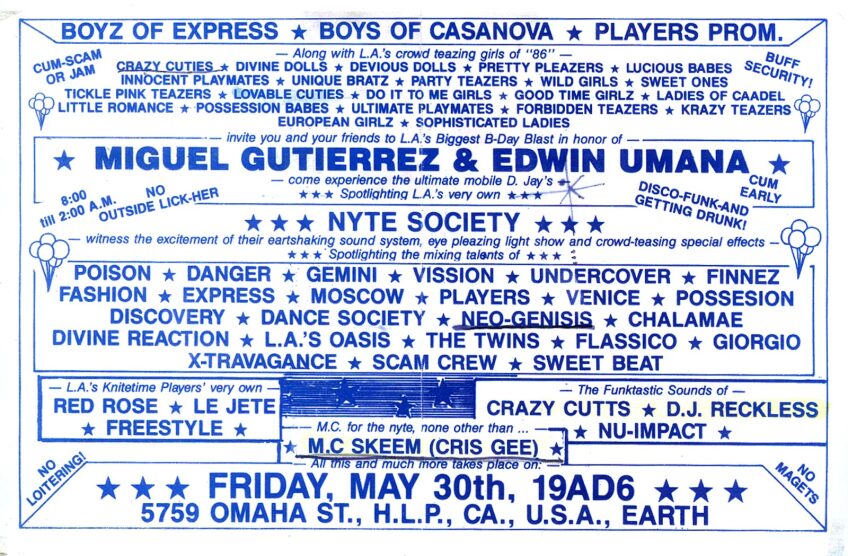







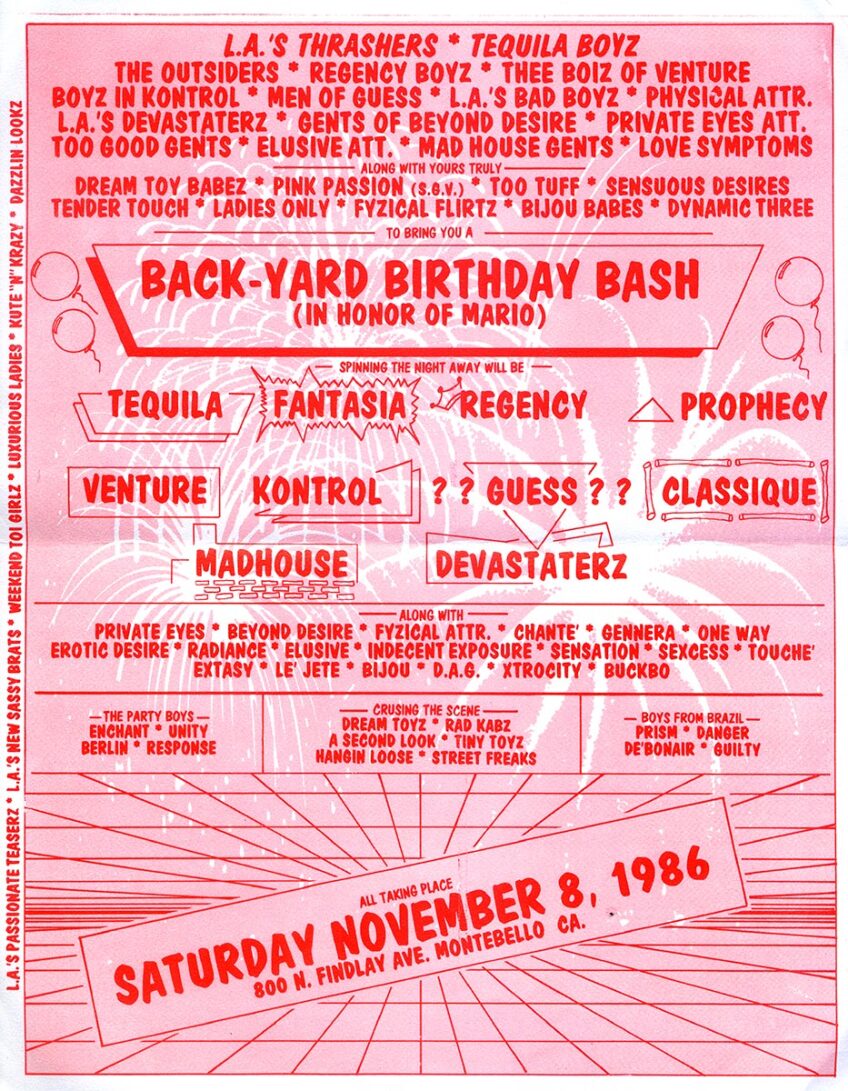

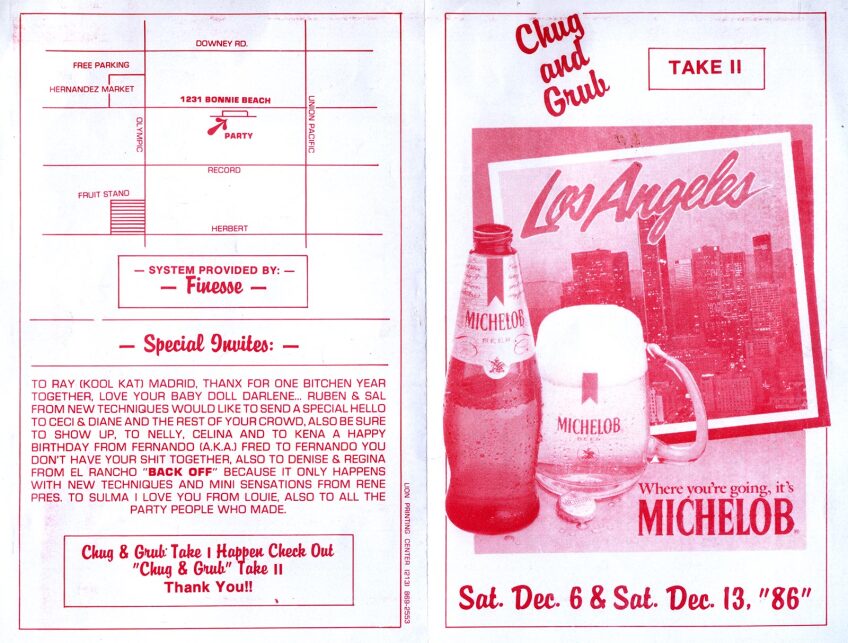
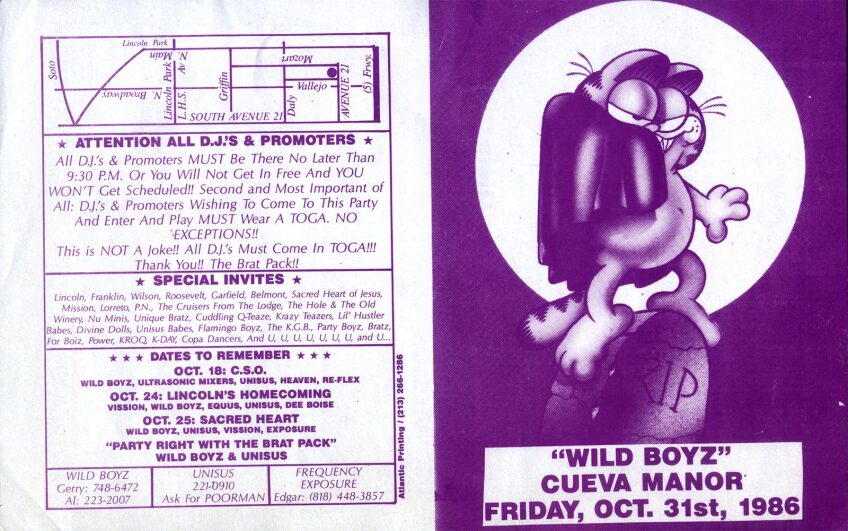
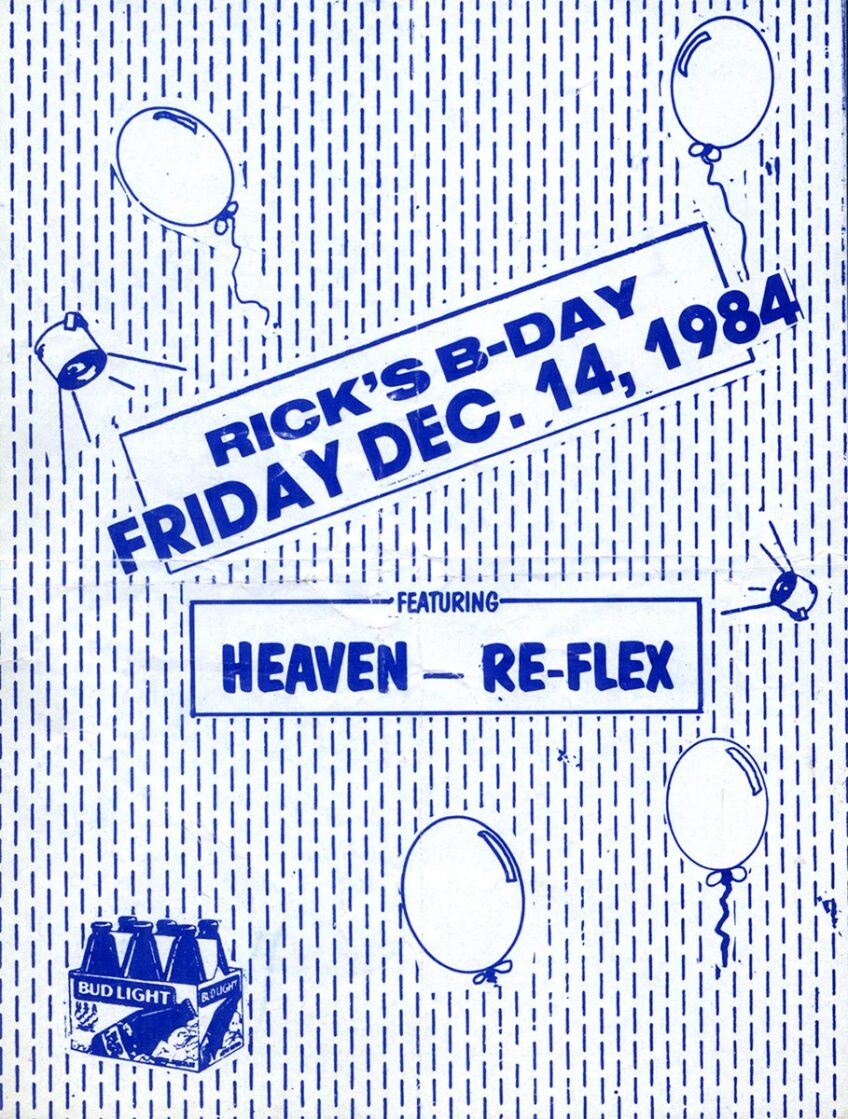
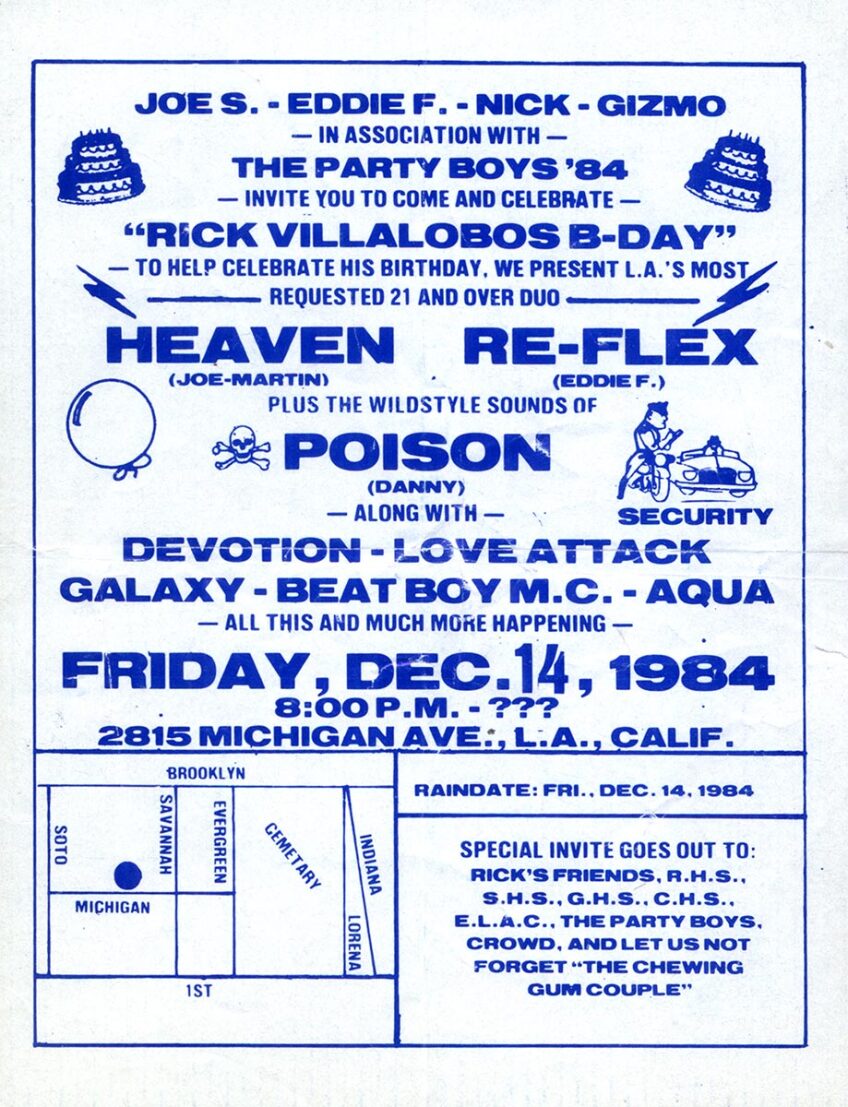







'80s Scene Gallery
Building social networks was the defining role of the promoter and DJ from the '80s. Both male and female party crews helped to promote backyard parties.
Groups like Divine Dolls and Wild Boyz shared a common goal: to host the most memorable backyard parties from that decade.
Karen Salgado shares photos of fashion and friends from her days as a Divine Doll.


















Gerard Meraz is the author of An Oral History of DJ Culture From East Los Angeles.